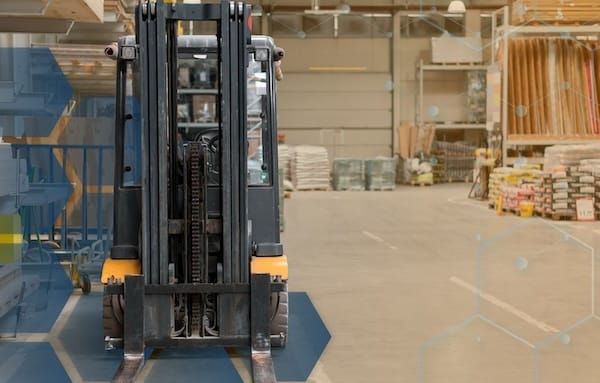- Warehouse Wisdom. Weekly.
- Posts
- Warehouse Wisdom. Weekly. 08/08/2025
Warehouse Wisdom. Weekly. 08/08/2025
Only the most relevant news for SMBs to improve logistics – picked, packed, and delivered without the bias.

Happy Friday!
The $32,678 annual surprise? That's what UPS customers are about to discover when dimensional rounding kicks in August 18—turning 11.1-inch packages into 12-inch billing nightmares. Meanwhile, small e-commerce sellers face their own existential math problem as de minimis exemptions vanish August 29, forcing fountain pen enthusiasts to panic-buy Japanese Sailor pens before tariffs make hobbies unaffordable. At the same time, companies deploying AI are watching their logistics managers become obsolete—because apparently the best way to cut management costs is to automate management itself.
The lesson? Small businesses get squeezed by forces they can't predict, big companies shrug at chaos through superior infrastructure, and AI discovers that replacing middle management is easier than replacing truck drivers.
Global Logistics
Maersk profits while tariff changes escalate

Here's how you know trade wars have become background noise: Maersk just raised its EBITDA guidance to $8-9.5 billion from $6-9 billion despite—or perhaps because of—all the tariff drama. The shipping giant's Q2 EBITDA climbed 7% to $2.3 billion as CEO Vincent Clerc credited "speed and flexibility" for navigating uncertainty. Translation: when everyone else panics about trade policy, smart operators make money from the chaos.
Container rates ignored Trump's August 7 deadline entirely—Trans-Pacific prices held steady at $2,300 per FEU for three consecutive weeks. Shippers have discovered something economists forgot to mention: deadline fatigue is real. After multiple rounds of panic buying earlier this year, the market collectively decided that treating every presidential announcement as supply chain Armageddon leads to expensive warehouse bloat and exhausted logistics teams. Even chaos has diminishing returns.
But the real challenge this week has come in the form of navigating more tariff changes. Papua New Guinea gets +5% while neighboring Vietnam faces -26%. Switzerland benefits with +8% while the entire European Union drops -5%. Cambodia gets hammered at -30% for reasons nobody can explain. But the hope is for things to get finalized soon and that transparency will reign.
Learn from this investor’s $100m mistake
In 2010, a Grammy-winning artist passed on investing $200K in an emerging real estate disruptor. That stake could be worth $100+ million today.
One year later, another real estate disruptor, Zillow, went public. This time, everyday investors had regrets, missing pre-IPO gains.
Now, a new real estate innovator, Pacaso – founded by a former Zillow exec – is disrupting a $1.3T market. And unlike the others, you can invest in Pacaso as a private company.
Pacaso’s co-ownership model has generated $1B+ in luxury home sales and service fees, earned $110M+ in gross profits to date, and received backing from the same VCs behind Uber, Venmo, and eBay. They even reserved the Nasdaq ticker PCSO.
Paid advertisement for Pacaso’s Regulation A offering. Read the offering circular at invest.pacaso.com. Reserving a ticker symbol is not a guarantee that the company will go public. Listing on the NASDAQ is subject to approvals.
Marketplace
Amazon's revenue shrug meets collector panic

Amazon's attitude toward trade chaos? A collective shrug. Q2 revenue hit $167.7 billion against $162.1 billion expectations as CEO Andy Jassy admitted "it's impossible to know what will happen" regarding tariffs but noted they "haven't yet seen diminishing demand nor prices meaningfully appreciating." Amazon's shipping costs barely budged at $22 billion, demonstrating a simple truth: when you own the logistics infrastructure, policy uncertainty becomes everyone else's headache. Building your own delivery army has advantages beyond speed.
Small businesses, meanwhile, face a completely different universe. The August 29 end of de minimis exemptions for all countries transforms specialty retail from global marketplace to luxury experience. Canadian cleaning company Oak and Willow called it "life-altering" as tariffs up to 50% replace duty-free treatment on shipments under $800. Jessica Minier, a fountain pen enthusiast, rushed to buy $400 worth of Japanese Sailor pens "because this may be it for a while." Policy changes that barely register on Amazon's radar can kill small businesses overnight.
Etsy's response reveals the desperation of shrinking platforms. Active buyers dropped 3.4% to 93.3 million as the company abandons TV advertising (from one-third of budget to less than one-tenth) and pins hopes on AI shopping agents finding their "unique and highly differentiated inventory." When your buyer base shrinks, brand building becomes a luxury you can't afford. Etsy's AI optimism sounds like a company hoping robots will solve customer acquisition problems humans have abandoned trying to fix.
Small Parcel Freight
UPS invents profitable math while Canada Post loses customers

What costs nothing to implement but generates $32,678 annually from a single customer? UPS discovered the answer: creative rounding. Starting August 18, any package dimension—11.1 inches becomes 12 inches for billing purposes. FedEx deployed identical timing, proving both carriers coordinate pricing strategies with pharmaceutical precision. When competitors move in perfect lockstep, competition becomes theatrical performance art.
Government monopolies learn harsh lessons about customer loyalty. Canada Post workers rejected their contract by 70% as the postal service hemorrhages $2.7 billion since 2018 and watches its parcel market share collapse from 62% to 24%. The union's math is simple: government ownership means taxpayers cover losses, so why accept concessions? Problem is, customers developed alternatives faster than bureaucrats developed excuses. The Albert Jackson facility sits "virtually empty" despite million-parcel daily capacity. Turns out "too big to fail" doesn't mean "too incompetent to lose customers."
Rural delivery requires different rules entirely. Tractor Supply builds its own network using pickup trucks and local drivers who understand that 70% of customers can't accommodate large trucks due to overhanging trees and tight driveways. A third live on gravel roads that defeat suburban delivery algorithms. Their solution: hire people who know that "final mile" often involves actual miles on unmarked roads. Sometimes the best logistics technology is a reliable pickup truck driven by someone who understands the territory.
Warehouse Tech
China deploys 7,500 vans while America perfects permits

Two approaches to autonomous deployment: China's Neolix went from 2,000 to 7,500 autonomous delivery vehicles across 280 cities in one year, with financing as low as $112 down payment. Each van carries 600-800 parcels while cutting fuel consumption by half at villages roads at 15-20 km/h. In Sichuan Province, three robotic "employees" work around the clock without lunch breaks, bathroom requests, or benefits negotiations. China's strategy: deploy first, regulate later.
America chooses regulatory performance art instead. Amazon's Zoox finally cleared federal vehicle safety exemptions after NHTSA closed its 2023 probe into self-certification processes. The company can now manufacture toaster-shaped robotaxis without steering wheels—targeting 10,000 vehicles annually once Las Vegas approves commercial service. Five years of paperwork to accomplish what Chinese companies deploy quarterly illustrates why innovation speed depends more on bureaucratic appetite than technological capability.
Packaging automation tells the boring success story nobody headlines. WebstaurantStore's 13 CVP Impack machines create fit-to-size boxes every seven seconds with over 95% uptime across 50,000 SKUs. The restaurant supply retailer reports packaging speeds seven times faster than manual methods with just 5% retraction rates. The lesson: automation ROI comes from reliability, not flashiness. Boring technology that works beats exciting technology that breaks.
Logistics Vitals
Executives automate themselves out of jobs

The irony writes itself: logistics executives celebrating 12% annual earnings growth from AI adoption above 60% don't realize they're programming their own pink slips. High-wage logistics managers face 90-100% automation potential compared to truck drivers who remain relatively protected. ZS Associates reduced client waste by 30% through AI analytics. Quinnox automated 40% of workflows directly into profit margins. The lesson? Artificial intelligence excels at eliminating artificial work—and middle management qualifies as the most artificial work of all.
AI-driven cost reductions deliver immediate ROI with 25% procurement cuts and 18% fuel savings from optimized routing
High-wage management roles face 90-100% automation exposure while truck drivers remain relatively protected from displacement
Generative AI unlocks new revenue streams with 50% faster customs processing and automated cross-border documentation
Investment priority targets firms with 50%+ AI adoption in core operations and transparent governance frameworks
Regulatory risks emerge as 6.6 million transportation workers face potential displacement triggering policy scrutiny
Warehouse Quick Deliveries
From rail meltdown fears to reverse logistics gold mines
Trade war survivors adapt through operational agility as Prologis, J.B. Hunt, and UPS cope with rapid freight shifts—proving flexibility trumps predictions
AI shopping agents gain ground despite trust deficits as eBay's personalized emails drive 40% more quality visits while 2 in 5 consumers remain skeptical
Returns processing transforms from liability to profit center with UK retailers slashing per-item costs by 60% through intelligent automation
Labor organizes against consolidation as SMART-TD mobilizes to block UP-Norfolk Southern merger citing past "meltdown" disasters
“I'm really terrified because the fall and winter are our busiest season and we rely on that income all year long.”

